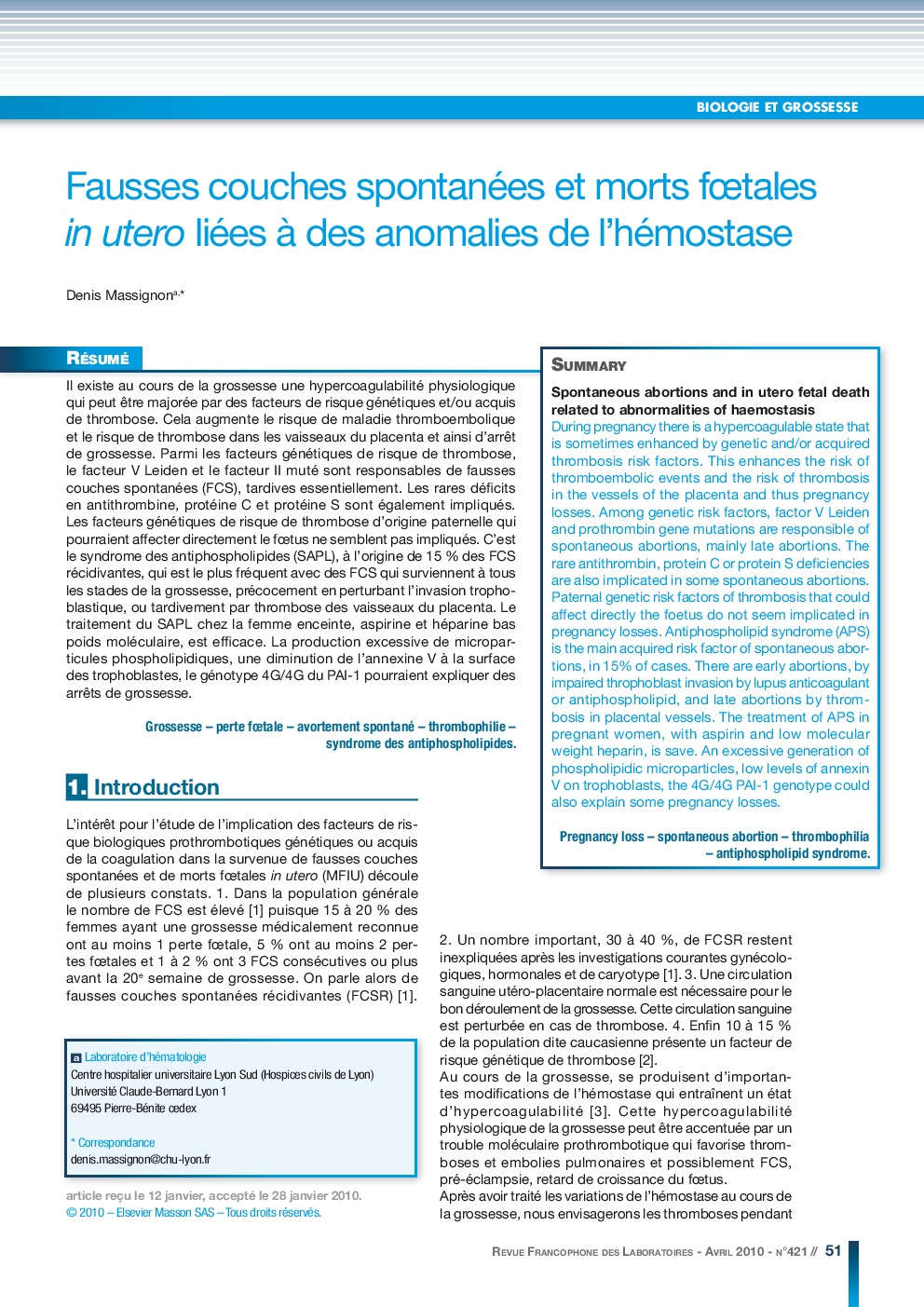| Article ID | Journal | Published Year | Pages | File Type |
|---|---|---|---|---|
| 7658481 | Revue Francophone des Laboratoires | 2010 | 7 Pages |
Abstract
During pregnancy there is a hypercoagulable state that is sometimes enhanced by genetic and/or acquired thrombosis risk factors. This enhances the risk of thromboembolic events and the risk of thrombosis in the vessels of the placenta and thus pregnancy losses. Among genetic risk factors, factor V Leiden and prothrombin gene mutations are responsible of spontaneous abortions, mainly late abortions. The rare antithrombin, protein C or protein S deficiencies are also implicated in some spontaneous abortions. Paternal genetic risk factors of thrombosis that could affect directly the foetus do not seem implicated in pregnancy losses. Antiphospholipid syndrome (APS) is the main acquired risk factor of spontaneous abortions, in 15% of cases. There are early abortions, by impaired throphoblast invasion by lupus anticoagulant or antiphospholipid, and late abortions by thrombosis in placental vessels. The treatment of APS in pregnant women, with aspirin and low molecular weight heparin, is save. An excessive generation of phospholipidic microparticles, low levels of annexin V on trophoblasts, the 4G/4G PAI-1 genotype could also explain some pregnancy losses.
Keywords
Related Topics
Physical Sciences and Engineering
Chemistry
Analytical Chemistry
Authors
Denis Massignon,
